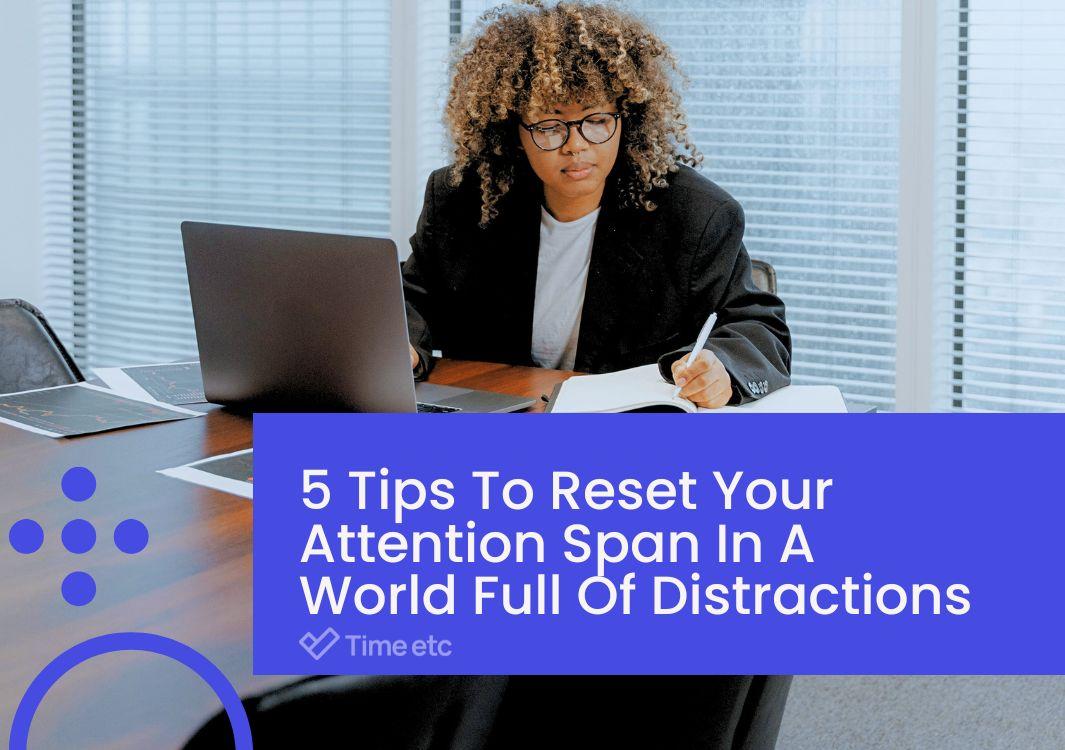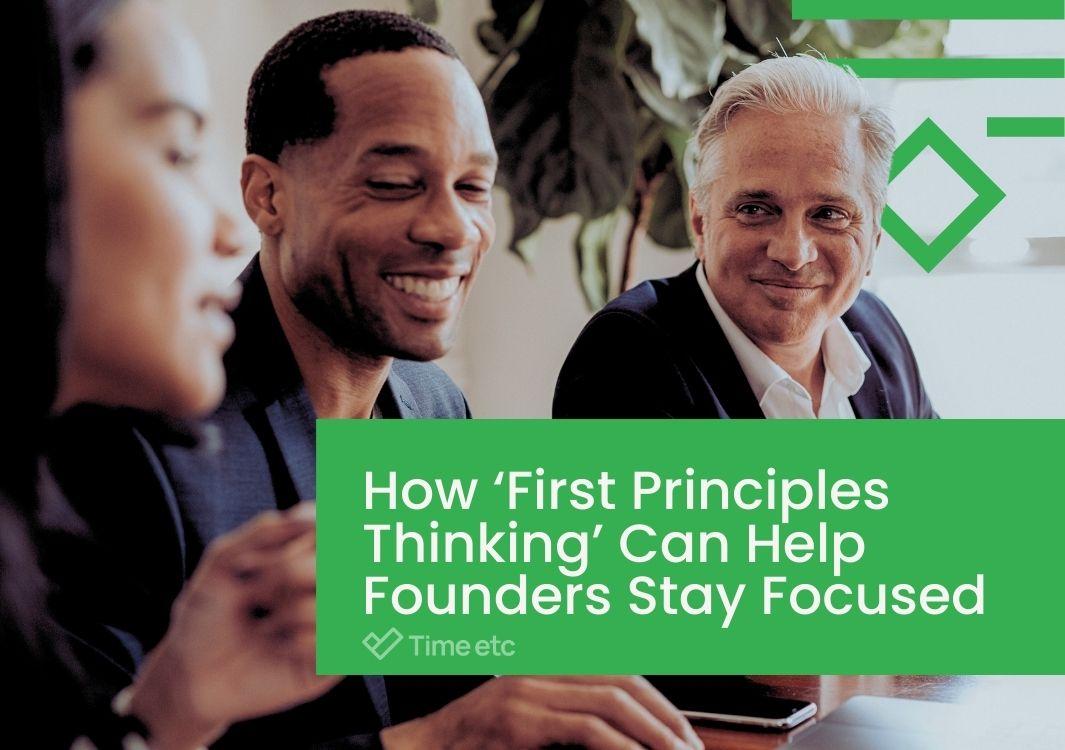There’s no denying that the holidays are one of the most hectic times of the year, especially for small business owners.
But whether you find the hustle and bustle of the festive season exhilarating or exhausting, all good things must come to an end. And when it's time to return to our regular routines, most of us find that getting out of holiday mode and back into work mode is much easier said than done.
Even if we're looking forward to getting back to business, it can be tough to shake off the vacation mindset and get ourselves organized and focused on what needs to be done. For some, it may take a few days (or even weeks) to readjust fully.
Luckily, there are plenty of effective methods that can help ease the transition and start your new year on the right foot.
Let’s dive in!
1. Declutter
When it comes to having a clear and focused mindset, your surroundings can make all the difference. “A tidy home makes for a tidy mind”, but according to research, there may be more truth to that old saying than we realize.
A 2011 study by Princeton Neuroscience Institute found that having a lot of visual stimuli present when trying to concentrate on one stimulus will result in all those items competing for your attention. Simply put, if there is too much going on in your view, you will need to concentrate harder to get a task done.
Not only is it distracting, but other studies have linked cluttered environments to poorer mental health and well-being, impaired cognitive skills such as visual processing and memory, and even unhealthier eating habits. So clear out anything you no longer need, including any unnecessary documents and apps on your computer.
However, for many of us, this can be a cleverly-disguised procrastination technique. If you’ve ever had important tasks to do–either at work or at home–but instead you decide it’s the perfect time to rearrange your home office, clear out old drawers, reorganize your shelves, or wash your car, you’re certainly not alone. You may feel like you’re being productive but in fact, you’re simply finding ways to avoid the task at hand. Focus on tidying and clearing instead of rearranging or redecorating, or set a timer to make sure you don’t veer off track.
2. Do what you can the night before
This may sound like common sense, but there’s some solid science behind it. One of the silent assassins of productivity is decision fatigue—the concept that the more decisions a person makes, the harder each decision subsequently becomes.
First introduced by social psychologist Dr. Roy Baumeister back in 1998 through his studies of self-control, humans have been found to have only a limited supply of mental energy. This means that the more decisions we make throughout the day, regardless of their importance, our ability to make smart choices, solve problems, or think creatively will decrease.
But the problem is, as the head of your business, you’re bound to be responsible for a lot of decisions on a daily basis. Even minor decisions, like choosing what outfits to wear or what breakfasts to make, take big hits out of our mental energy reserves and leave us with less for our more important tasks later on. This makes us far more likely to feel overwhelmed or mentally drained way before our day is done.
By removing as many elements of choice from our mornings as possible, we avoid wasting our vital mental energy. Simply laying out outfits and ingredients for breakfast the night before can save you time and keep your mental energy levels high for when you need it most. You’ll be surprised at how much less of a struggle it is to stay focused and motivated during those first few days back into your routine.
3. Be well-rested
Whatever you got up to over the festive period, the transition back to work is always infinitely more manageable when you’re not having to battle to keep your eyes open.
Although we may feel like we can function perfectly fine on less than the recommended 8-10 hours of sleep, this habit can be much more detrimental than we realize. Few things have so many far-reaching, negative effects as sleep deprivation. In terms of our effectiveness at work, lack of sleep leads to lower alertness and concentration, as well as impaired judgment, memory, and learning. Not only that, lack of sleep can significantly affect your mood and reduce your ability to cope with stress.
If you find sleep eludes you more than most, the following are some of the best methods for getting a good night’s rest.
- Aim to go to sleep and get up at the same time every day. This will help set your internal clock.
- Avoid using devices before bed. Blue light — which smartphones and computers emit in large amounts — can trick your brain into thinking it’s still daytime, which then reduces the production of sleep hormones such as melatonin.
- Take a bath or shower before bed. Studies have shown it can help improve sleep quality and help people get more deep sleep.
- Keep your bedroom cool, dark, and quiet.
- Incorporate more physical activity or exercise into your day. One study found that exercise nearly halved the amount of time it took its participants to fall asleep.
- Try taking supplements such as melatonin, magnesium, valerian root, or vitamin B12.
4. Start with a small win
The perfect morning routine is bound to look different for everyone, but according to Paula Davis, founder of The Stress and Resilience Institute and author of "Beating Burnout At Work", the key to a more successful morning routine is to start your day with small wins. Whether it’s making your bed, eating a healthy breakfast, or completing a quick morning workout, these small wins create a sense of accomplishment that will carry over into the rest of the day, building momentum and encouraging us to keep achieving more.
"When we see a sense of progress in really small ways, in goals that really matter to us, it's enormously motivational," says Davis. "And seeing that sense of progress refuels us to keep doing more of the same."
5. Get caught up
In my experience, sitting back down at your desk and logging back on at 9 am on your first day back at work always felt like being thrown back in at the deep end. Returning to hundreds of emails in your inbox can be incredibly overwhelming, and it feels impossible to know where to start.
If you can, aim to spend a little time before your usual start time to catch up and refamiliarize yourself with what you’re working on. This will help you ease back into your work and feel ready to tackle whatever lies ahead.
6. Block out slots for deep work
I like to think of focus as being like a muscle. If you haven’t had to use it for a while, you might find that it needs a bit of work to get it back to its former strength. One of the most effective ways to rebuild your focus and get back into the swing of work is to schedule periods of deep work.
Decide how long each session will be, and stick to it. You might find shorter sessions work best to begin with, and then you can slowly increase them over time. Choose a workspace that’s as distraction-free as possible, and aim to use this workspace consistently for these sessions. Your brain will start to associate this area with deep work, and you’ll be able to get into the zone much easier. Grab a coffee, set your phone to “Focus” or “Do Not Disturb” mode, put some earplugs or noise-canceling headphones on, and get ready to tap into your best work.
7. Take breaks
When you’re returning from time off work, it can be tempting to want to power through and do as much as you can in the day, almost as a way of making up for lost time. But in reality, this can do more harm than good.
Based on the work of groundbreaking sleep researcher Nathaniel Kleitman, experts agree that humans experience 90-120-minute cycles of high to low energy, which is now known as our ultradian rhythms. These cycles also apply to our ability to focus. Even if you did push past 90-120 minutes of consistent work, according to the principles of ultradian rhythms, the quality of your output is likely to be lower when you’re lacking the energy to concentrate fully. Taking regular breaks helps you to consistently manage your energy levels throughout the day.
If you feel like you don’t have time for a “proper” break, experts say that micro-breaks are worthy alternatives. By definition, micro-breaks are short – no more than five minutes – and simple ways to break up repetitive work and give you a mental or physical boost for when you return.
Whether it’s walking to the kitchen to make a hot drink or eat a healthy snack, stepping away from your desk to look out a window, or doing some light stretches to relieve your back and neck muscles, these little moments of respite may be all you need to rejuvenate and refresh your mind again.
What’s the bottom line?
Between preparing food, buying gifts, attending parties, and traveling to visit family and friends, there’s no other time of year that can be so exciting, overwhelming, and stressful all at once. Now the holidays are firmly in the rearview mirror, it can feel like a tough journey back to reality and busy routines in the new year. But the good news is, it doesn’t have to be.
Give these tips a try and jump-start your focus and productivity for 2023.







